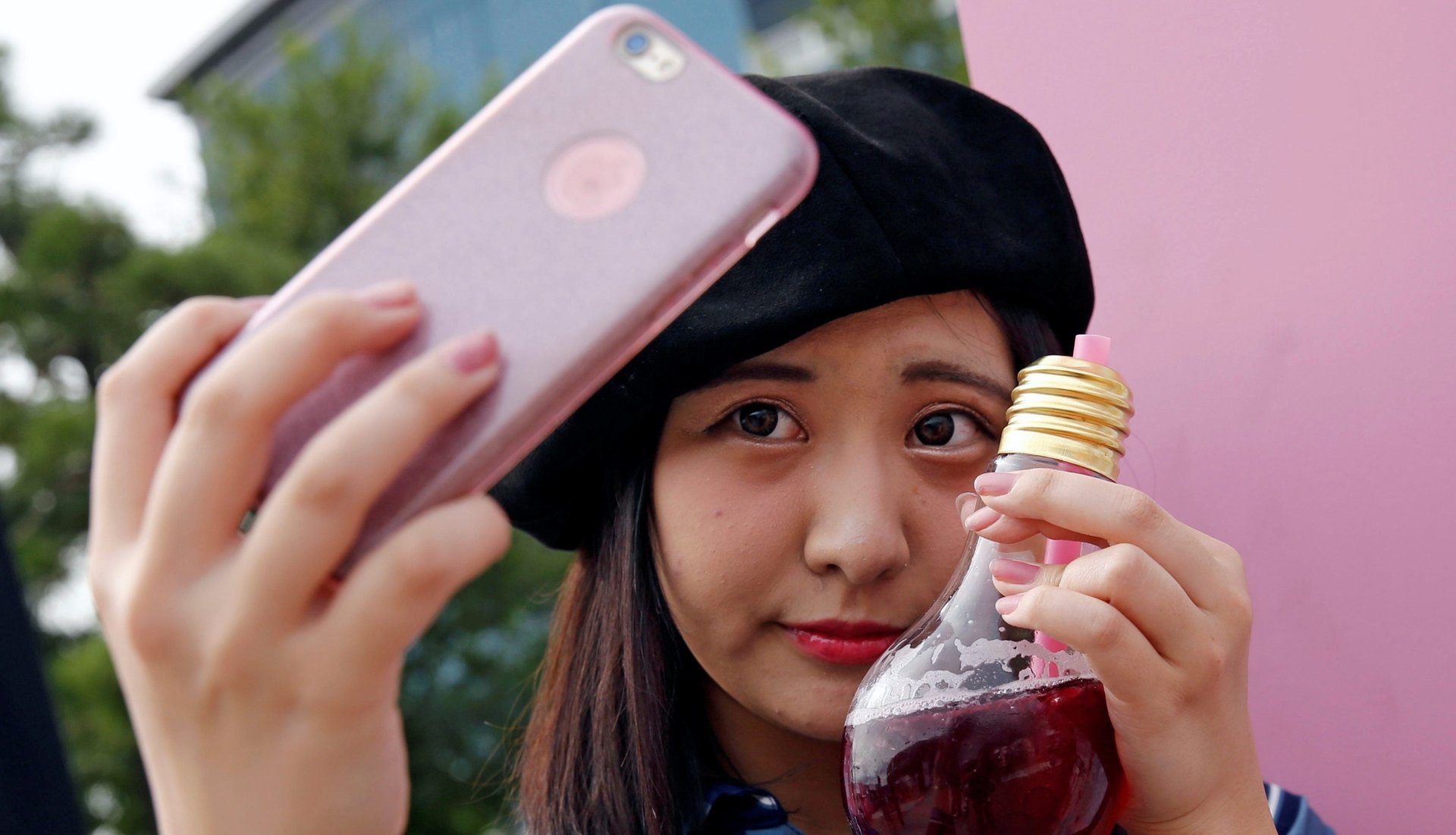The Japanese words that perfectly sum up how the country felt this year
Japan’s buzzwords of 2017 have been announced.


Japan’s buzzwords of 2017 have been announced.
The winner is sontaku, a hitherto little-used and neutral term that best represents the Japanese political zeitgeist this year, as criticism over prime minister Shinzo Abe’s concentration of power grew sharper. The word refers to people who perform pre-emptive acts to ingratiate themselves to their superiors, and came into use this year with reference to a scandal relating to a nationalist-school operator that implicated Abe and his wife.
In second place is insuta-bae, a word which combines “Instagram” with “haeru,” meaning to shine or to stand out, and is used to describe the manner in which individuals and businesses alike all chase the perfect Instagram photo and “likes.”
The words were chosen by publisher Jiyukokuminsha and a panel that includes, among others, an academic and an actress. The committee said (link in Japanese) that sontaku was the most-searched term on the online Japanese dictionary goo for four straight months.
Other contenders in the shortlist of 30 words (link in Japanese, paywall) were:
- Aufheben: a German word used by philosopher Georg Hegel which translates to “sublation” that was used by Tokyo governor Yuriko Koike this year in reference to the planned relocation of the Tsukiji fish market in Tokyo to a new location in Toyosu. Koike said the government’s intention was to “to stop and take stock of what the market is now before taking it to a higher level.”
- Unko kanji doriru (drills): The title of a wildly popular series of books published featured a poop-shaped professor who teaches Japanese children how to write Chinese characters, or kanji.
- Hatarakikata kaikaku: The term meaning “work-style reform” was frequently used by government officials and companies this year as Japan tries to tackle problems such as overwork and inefficiency—for example by promoting working remotely and reprimanding companies with poor labor practices, most notably advertising giant Dentsu, which was fined after it was found guilty of working an employee to death.
- J-arato: “J-alert,” the early-warning system that sends alerts to people’s phones warning of potential emergencies, was originally meant for natural disasters, but in 2017 the system became associated with incoming missiles from North Korea.
Last year’s winner was kamitteru, or “godlike,” a slang word that went viral (paywall) after baseball team Hiroshima Carp manager Ogata Koichi used it to describe outfielder Suzuki Seiya’s home runs. The award was given to two words in 2015, including another baseball-related word, “triple three” (toripuru suri), which refers to players who achieve a .300 average, 30 home runs, and 30 stolen bases in a season. The other was bakugai, or “explosive buying,” referring to Chinese tourists’ shopping sprees in Japan.